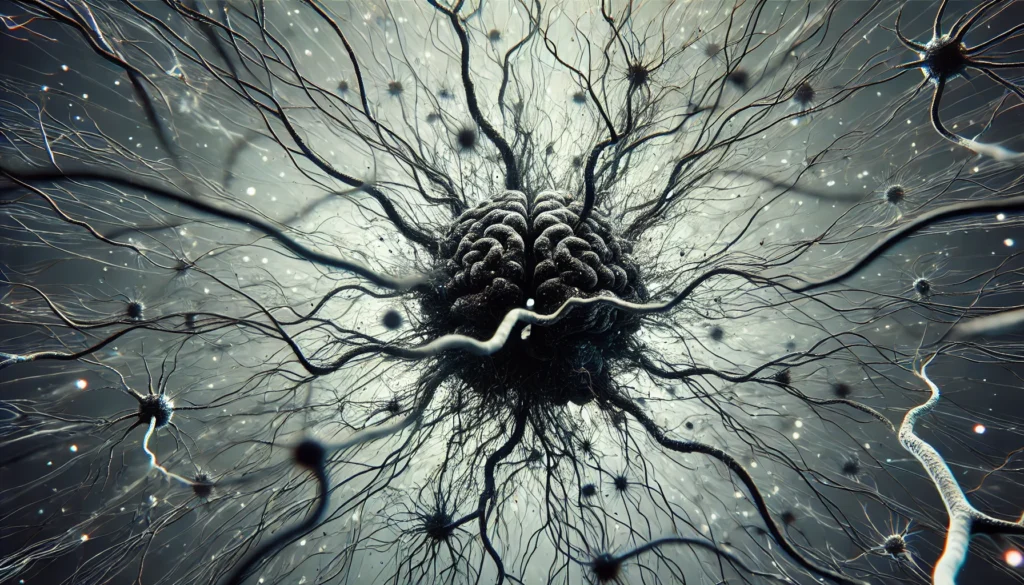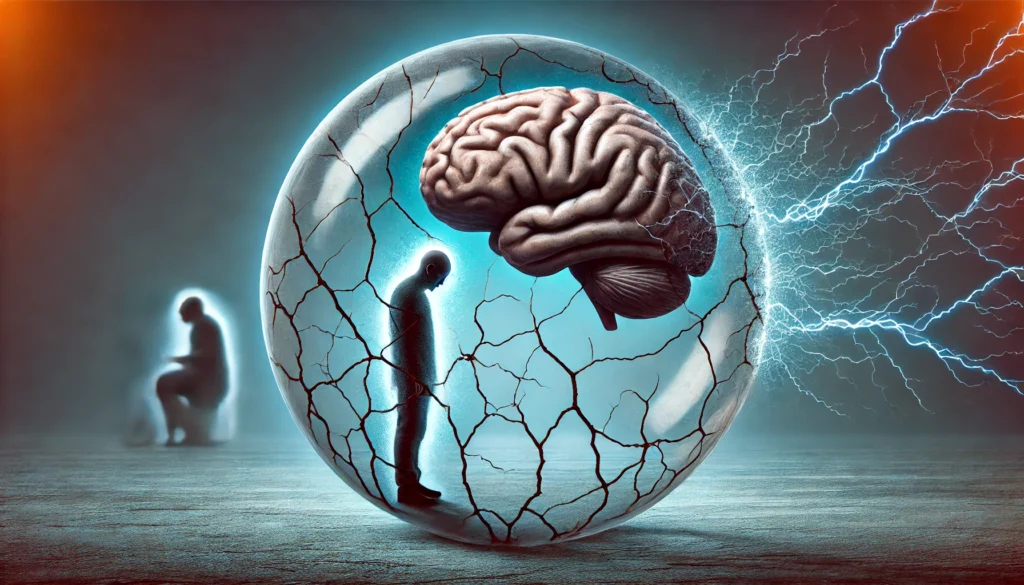Anxiety is a complex emotional state characterized by feelings of tension, worried thoughts, and physical changes like increased blood pressure. It’s a natural response to stress, but when it becomes chronic, it can take a toll on both mental and physical health. On the other hand, dementia is a collective term used to describe various symptoms of cognitive decline, such as forgetfulness, disorientation, and difficulty with thinking and reasoning.
You may also like: Understanding the Science Behind Lost Memory
Historical Perspective
Historically, anxiety and dementia were treated as separate entities. Anxiety was largely considered a psychological issue, while dementia was viewed as a neurological condition often associated with aging. The medical community focused on treating these conditions independently, often neglecting the potential overlap in their underlying mechanisms.
With advancements in neuroscience, researchers began to question the distinct separation of anxiety and dementia. As studies emerged, the possibility of a link between chronic anxiety and the onset of dementia became more apparent. This shift in understanding marked a significant change in how healthcare professionals approached treatment and prevention strategies for cognitive disorders.
The historical context of anxiety and dementia also reflects broader societal attitudes towards mental health and aging. In earlier times, both anxiety and dementia were often stigmatized, leading to underreporting and inadequate treatment. As awareness grows, more attention is being paid to the interconnectedness of mental and neurological health.
Current Scientific Insights
Recent studies have suggested that anxiety could be both a symptom and a potential risk factor for developing dementia. For instance, chronic anxiety has been associated with the overproduction of stress hormones such as cortisol. Elevated cortisol levels can lead to brain changes that may increase the risk of cognitive impairment and dementia.
Scientific research has delved into the physiological effects of anxiety on the brain. Prolonged exposure to stress hormones not only affects brain structure but also impacts brain function. Neuroimaging studies have shown that individuals with chronic anxiety often exhibit changes in brain regions associated with memory and executive function.
Moreover, anxiety can exacerbate symptoms in individuals already diagnosed with dementia. The stress and worry associated with anxiety may aggravate memory problems and impair daily functioning, accelerating the progression of dementia. Understanding this bidirectional relationship is crucial for developing comprehensive care plans for those affected by both conditions.
Anxiety as a Risk Factor
Research indicates that individuals who experience persistent anxiety may have a higher risk of developing dementia later in life. A study published in “The American Journal of Geriatric Psychiatry” found that older adults with anxiety symptoms were significantly more likely to develop dementia over a follow-up period. While this does not establish a direct cause-and-effect relationship, it underscores the importance of addressing anxiety as a potential modifiable risk factor.
The identification of anxiety as a risk factor for dementia has led to increased interest in preventative strategies. By targeting anxiety through early interventions, it may be possible to reduce the likelihood of developing dementia. This approach emphasizes the importance of mental health care as a critical component of overall health maintenance.
Additionally, the role of genetics in the anxiety-dementia relationship is an area of ongoing research. Some studies suggest that genetic predispositions may influence both anxiety disorders and dementia, highlighting the need for personalized approaches in treatment and prevention.
The Mechanisms: How Does Anxiety Lead to Dementia?
Understanding the biological mechanisms that link anxiety to dementia is key to developing effective interventions. Here are some of the pathways through which anxiety may influence dementia progression:
Neuroinflammation
Chronic anxiety can lead to prolonged activation of the body’s stress response system, resulting in increased inflammation in the brain. Neuroinflammation is a known contributor to neurodegenerative diseases, including Alzheimer’s disease, the most common form of dementia.
The connection between anxiety and neuroinflammation is rooted in the body’s immune response. When the brain perceives a threat, it activates an inflammatory response meant to protect neural tissues. However, chronic stress can lead to a persistent inflammatory state, damaging healthy brain cells and accelerating neurodegeneration.
Research into neuroinflammation has opened new avenues for potential therapies. Anti-inflammatory treatments are being explored as a means to mitigate the effects of chronic anxiety on brain health. These therapies aim to reduce inflammation and protect cognitive function in individuals at risk of dementia.

Vascular Changes
Anxiety is associated with changes in blood pressure and heart rate, which can affect cerebral blood flow. Compromised blood flow to the brain can lead to vascular damage and contribute to cognitive decline.
The cardiovascular effects of anxiety are well-documented, with stress-induced spikes in blood pressure leading to wear and tear on blood vessels. Over time, this can result in vascular lesions or reduced blood supply to critical areas of the brain, impacting memory and cognitive abilities.
Understanding the link between anxiety, vascular health, and dementia has significant implications for prevention and treatment. Lifestyle modifications, such as diet and exercise, along with medical interventions, can help manage anxiety and protect vascular health, potentially reducing dementia risk.
Amyloid Beta Accumulation
Some studies suggest that anxiety may influence the accumulation of amyloid beta, a protein that forms plaques in the brains of individuals with Alzheimer’s disease. While the exact relationship is still being explored, reducing anxiety could potentially impact amyloid beta deposition.
The role of amyloid beta in Alzheimer’s disease has been a focus of research for decades. Emerging evidence suggests that stress and anxiety may accelerate the production or impede the clearance of these proteins, leading to plaque formation and neuronal damage.
Targeting amyloid beta accumulation through anxiety management offers a promising direction for future research. Therapies aimed at reducing stress could complement pharmacological approaches in slowing the progression of Alzheimer’s disease and other forms of dementia.
Managing Anxiety to Protect Brain Health
Given the potential impact of anxiety on dementia, managing anxiety becomes an essential strategy for protecting cognitive health. Here are some practical approaches:
Mindfulness and Relaxation Techniques
Mindfulness practices, such as meditation and deep breathing exercises, can help reduce anxiety levels. These techniques promote relaxation and have been shown to have positive effects on brain health.
Mindfulness training encourages individuals to focus on the present moment, reducing rumination and worry. This practice has been associated with decreased stress hormone levels and improved emotional regulation, contributing to better mental health outcomes.
Incorporating mindfulness into daily routines can be a simple yet effective way to manage anxiety. Even short sessions of focused breathing or meditation can lead to significant improvements in mood and cognitive function.
Physical Activity
Regular physical activity is not only beneficial for overall health but also plays a role in reducing anxiety and supporting cognitive function. Engaging in activities like walking, yoga, or dancing can be effective in managing anxiety.
Exercise is known to release endorphins, which are natural mood elevators. This biochemical response can counteract the effects of stress, lowering anxiety levels and promoting a sense of well-being.
Beyond its immediate effects on mood, physical activity enhances brain plasticity and cognitive resilience. By promoting vascular health and encouraging neurogenesis, regular exercise serves as a protective factor against cognitive decline.
Cognitive Behavioral Therapy (CBT)
CBT is a therapeutic approach that helps individuals identify and challenge negative thought patterns and behaviors. It has been proven effective in treating anxiety and may have a protective effect against cognitive decline.
Through CBT, individuals learn to reframe their thoughts and develop coping strategies for anxiety-provoking situations. This approach not only reduces anxiety symptoms but also strengthens cognitive processes, such as problem-solving and memory.
The skills acquired through CBT can empower individuals to manage stress more effectively, contributing to long-term mental and cognitive health. By addressing anxiety proactively, CBT offers a pathway to reducing the risk of dementia.

Social Engagement
Maintaining social connections is important for mental well-being. Social interaction can help alleviate anxiety and provide cognitive stimulation, which is crucial for brain health.
Human connections offer emotional support and a sense of belonging, which are vital for reducing feelings of anxiety and loneliness. Engaging in social activities stimulates the brain, enhancing cognitive reserve and resilience against decline.
Community involvement and social networks provide opportunities for intellectual engagement and emotional fulfillment. These interactions are not only enjoyable but also essential for sustaining cognitive vitality and mental well-being.
Future Directions: Research and Implications
As we continue to explore the link between anxiety and dementia, further research is needed to clarify the causal pathways and develop targeted interventions. Understanding this relationship could lead to innovative approaches for preventing and managing dementia.
The Role of Technology
Advancements in technology offer promising avenues for both research and intervention. Wearable devices and mobile apps can monitor anxiety levels and provide real-time feedback, enabling individuals to take proactive steps in managing their mental health.
Technology has the potential to transform the landscape of mental health care by providing accessible and personalized interventions. Digital tools can track physiological indicators of anxiety, such as heart rate variability, offering insights into an individual’s stress response.
Furthermore, virtual reality and digital platforms offer innovative ways to deliver therapy and support for anxiety management. These technologies can enhance traditional therapeutic approaches, making mental health resources more widely available.
Integrative Approaches
Future research may focus on integrative approaches that combine pharmacological treatments with lifestyle modifications. Personalized interventions that address both anxiety and cognitive health could hold the key to slowing dementia progression.
By integrating medication with behavioral therapies, healthcare providers can offer comprehensive care tailored to individual needs. This holistic approach acknowledges the multifaceted nature of anxiety and dementia, emphasizing the importance of treating the whole person.
Exploring the synergy between pharmacological and non-pharmacological interventions may yield new insights into effective strategies for maintaining cognitive health. The development of personalized care plans represents a forward-thinking approach to dementia prevention.
Policy and Public Health Implications
As the link between anxiety and dementia becomes clearer, there are important considerations for policy and public health. Addressing mental health as a component of dementia prevention requires a shift in resource allocation and public health priorities.
Promoting mental health awareness and access to care is crucial for reducing the burden of dementia in aging populations. Public health campaigns and education initiatives can empower individuals to recognize and address anxiety, contributing to overall brain health.
Policymakers have a role in supporting research and implementing programs that integrate mental health services into primary care settings. By prioritizing mental health, societies can work towards reducing the incidence and impact of dementia.

Conclusion
The impact of anxiety on dementia progression is a complex and evolving area of study. While anxiety may not directly cause dementia, it appears to play a significant role in influencing cognitive decline. By addressing anxiety through mindfulness, exercise, therapy, and social engagement, individuals can potentially protect their brain health and reduce the risk of dementia. As research advances, a clearer understanding of the anxiety-dementia connection will pave the way for more effective strategies to support cognitive well-being.
Understanding the interplay between anxiety and dementia empowers us to take proactive steps in preserving cognitive health. By staying informed and adopting a holistic approach, we can make meaningful strides in preventing and managing dementia in the face of anxiety. The future holds promise for innovative interventions and a more integrated approach to mental and cognitive health, offering hope for healthier aging and improved quality of life.
Further Reading:
Chronic and new anxiety tied to increased dementia risk
Alzheimer’s Disease and Anxiety
Important Note: The information contained in this article is for general informational purposes only, and should not be construed as health or medical advice, nor is it intended to diagnose, prevent, treat, or cure any disease or health condition. Before embarking on any diet, fitness regimen, or program of nutritional supplementation, it is advisable to consult your healthcare professional in order to determine its safety and probable efficacy in terms of your individual state of health.
Regarding Nutritional Supplements Or Other Non-Prescription Health Products: If any nutritional supplements or other non-prescription health products are mentioned in the foregoing article, any claims or statements made about them have not been evaluated by the U.S. Food and Drug Administration, and such nutritional supplements or other health products are not intended to diagnose, treat, cure, or prevent any disease.


